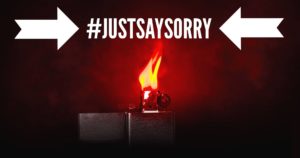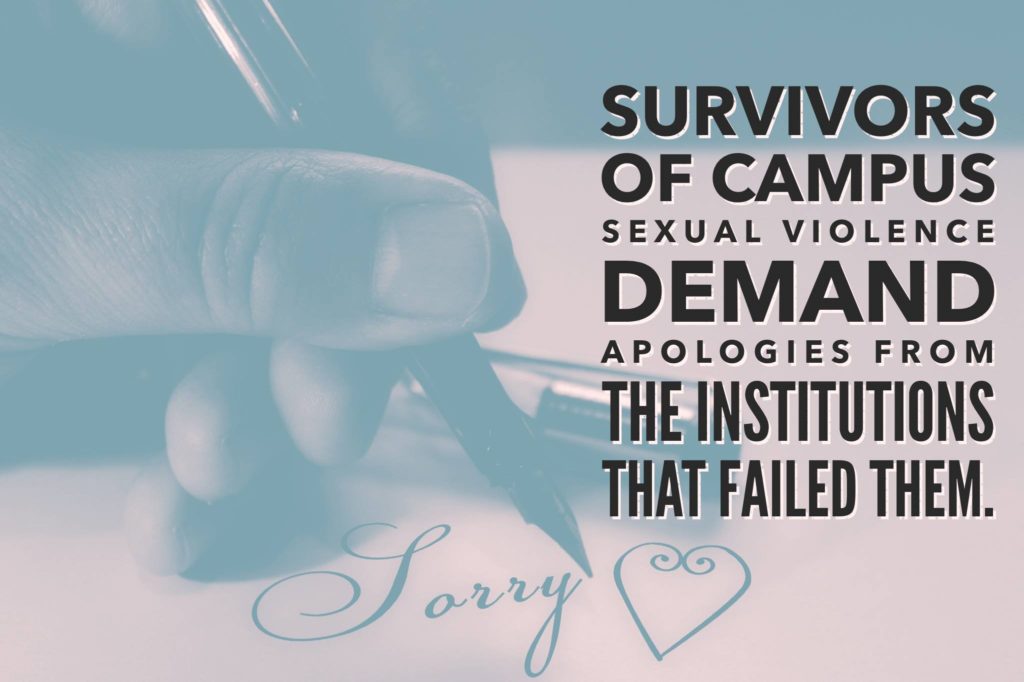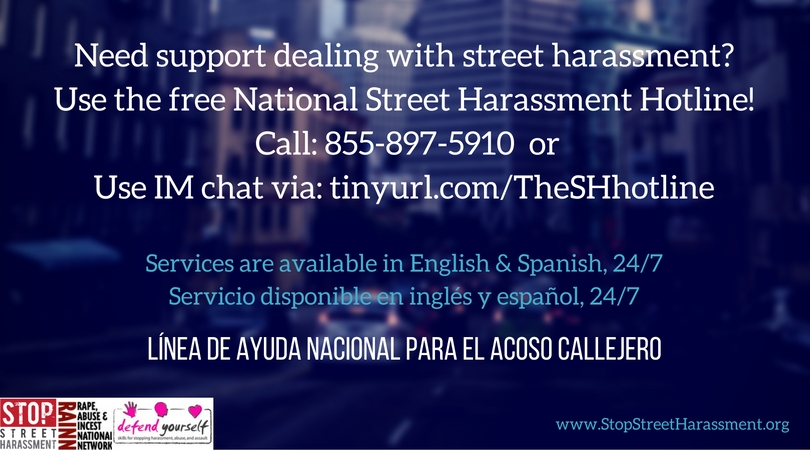I was walking down the street with my little sister and mother in front of me and a group of teenage boys passed next to me walking in the opposite direction. They were making noises to attract my attention but I looked down and actually, I didn’t even noticed their presence until one of the boys almost rubbed himself against me when passing and stroked my cheek. I was shocked and angry. I didn’t even know how to react.
That wasn’t my first time experiencing street harassment. I am quite used of it. I’ve already been stalked, followed, called names, but that was the first time someone had actually touched me without my consent. Normally I don’t pay attention to those behaviors but this time it was different. I realized that this wasn’t normal. Like my body isn’t a public area and these kinds of thing shouldn’t happen. I shouldn’t go out and worry about street harassment. Because street harassment isn’t normal and shouldn’t happen!!
I was really shocked and angry as I said, but this made me realize that people shouldn’t be afraid to talk about things like street harassment or whatever makes them uncomfortable!! That we should also stand for our rights and help create a world where we could walk wherever we want without suffering from street harassment!
So in the end I’m glad I’ve realized all this and I hope this story will help others to express themselves.
Optional: What’s one way you think we can make public places safer for everyone?
I think we should continue to raise awareness and encourage women and men to speak their mind.
– Khooshalee
Location: Port-Louis/Port-Louis/Mauritius
Need support? Call the toll-free National Street Harassment hotline: 855-897-5910
Share your street harassment story for the blog.
See the book 50 Stories about Stopping Street Harassers for ideas.


 A few years have passed since Wanjuki and Wilingham were sexually assaulted while students at Tufts University and Harvard Law School respectively, they discuss the long-range impact of institutional betrayal. In a
A few years have passed since Wanjuki and Wilingham were sexually assaulted while students at Tufts University and Harvard Law School respectively, they discuss the long-range impact of institutional betrayal. In a  Wanjuki and Willingham are reminding us through their deeply personal and cathartic actions that genuine apologizing is a rare, critical, and distressingly radical act for administrators and institutions. Survivors Ending Rape Culture is calling on survivors to send them items from alma maters who failed them or to post videos or photos of themselves withholding their donations to their institutions.
Wanjuki and Willingham are reminding us through their deeply personal and cathartic actions that genuine apologizing is a rare, critical, and distressingly radical act for administrators and institutions. Survivors Ending Rape Culture is calling on survivors to send them items from alma maters who failed them or to post videos or photos of themselves withholding their donations to their institutions.